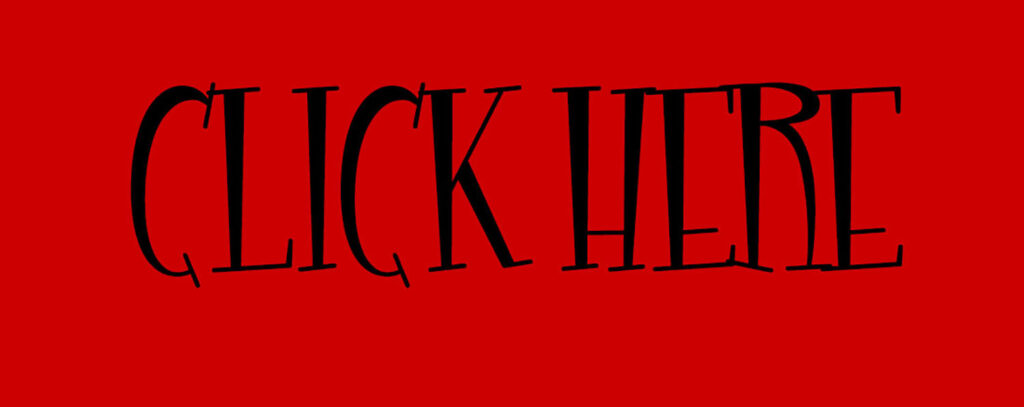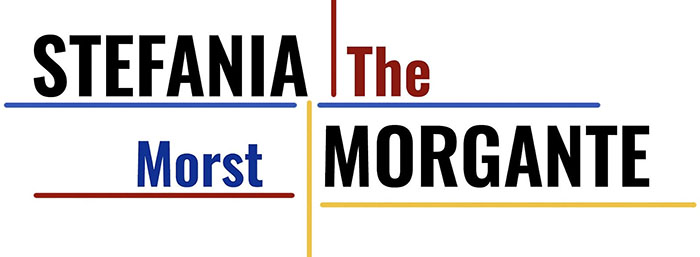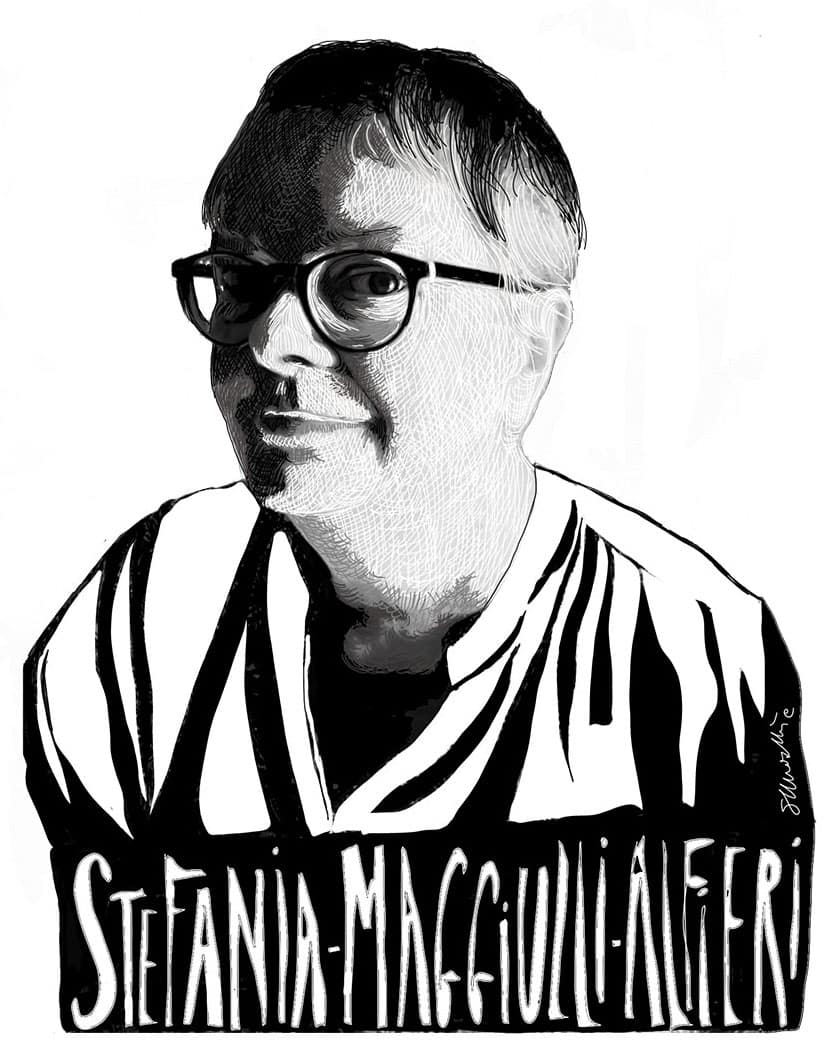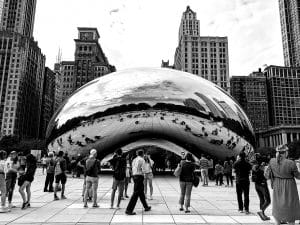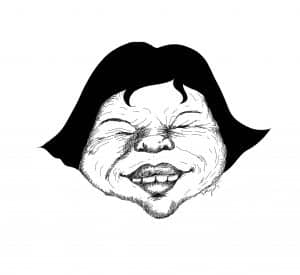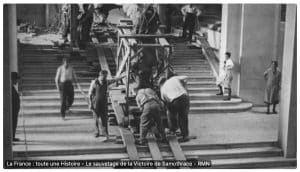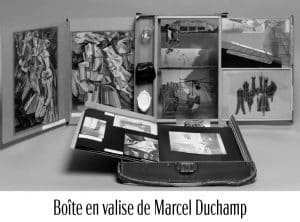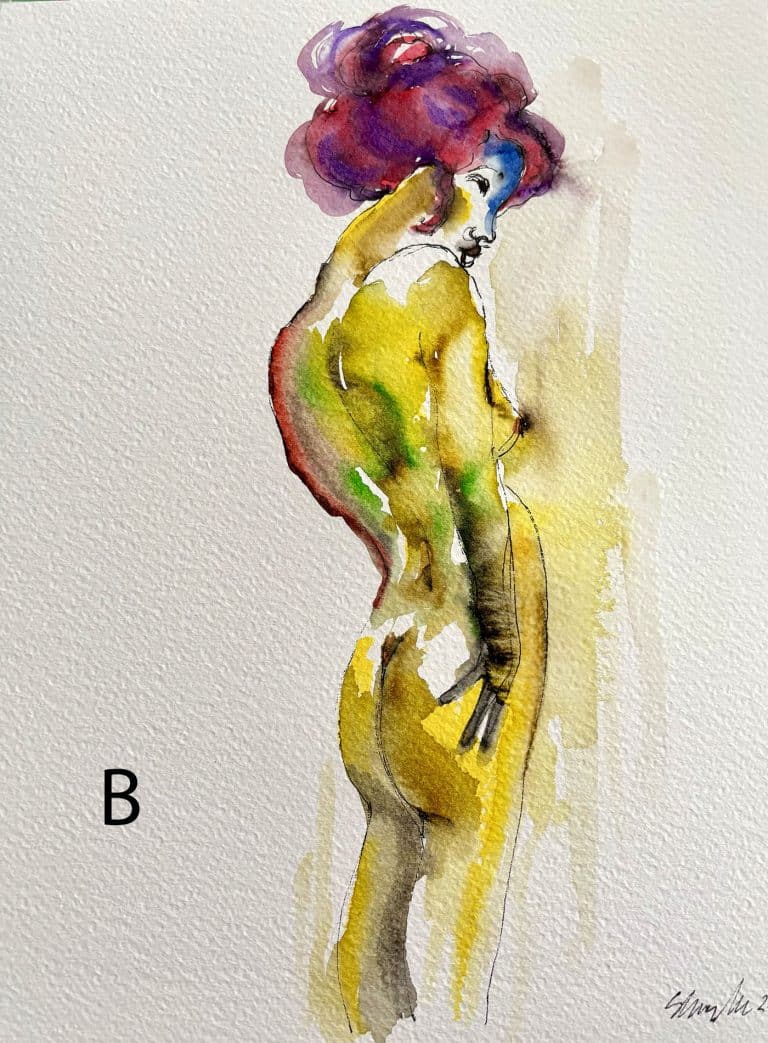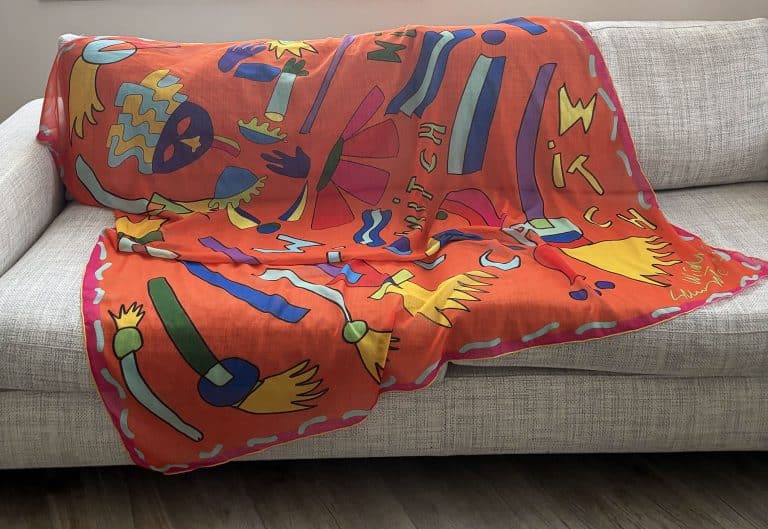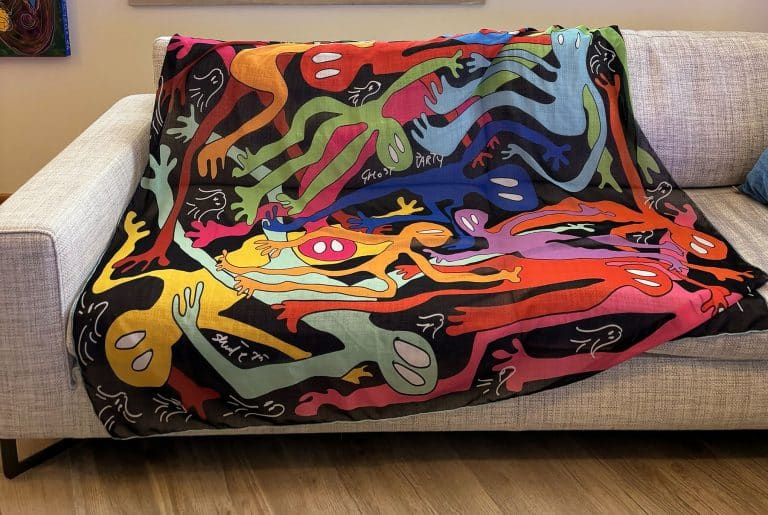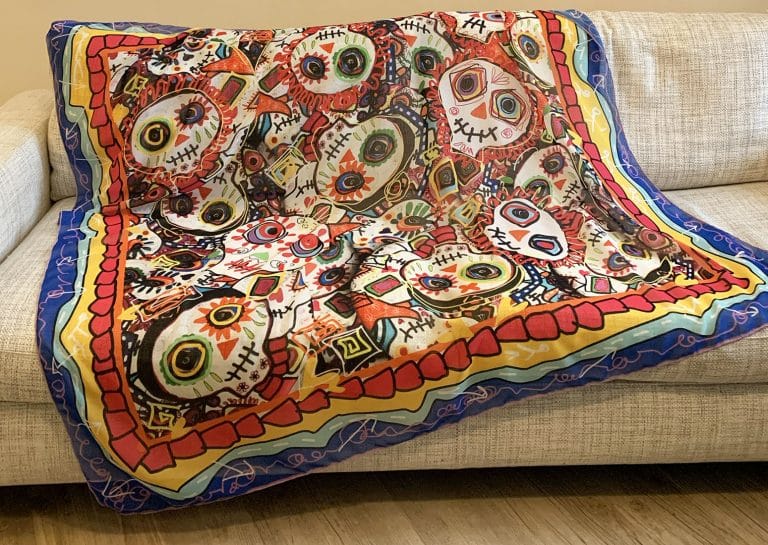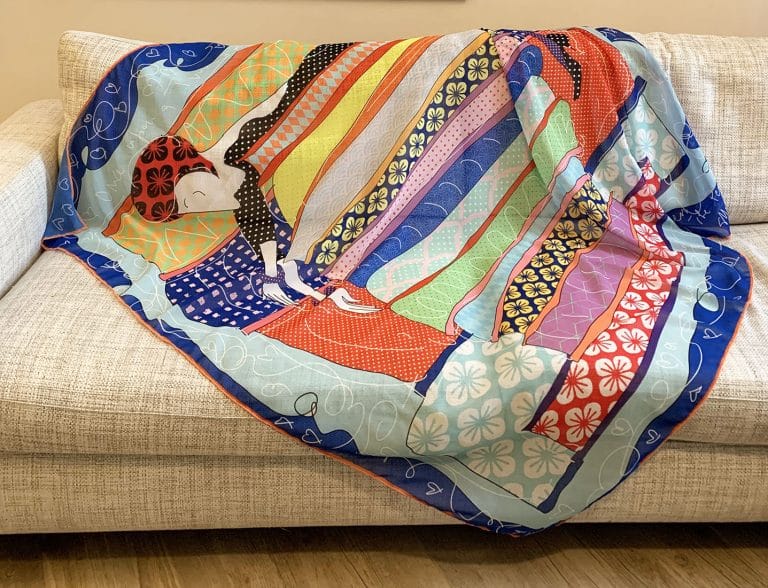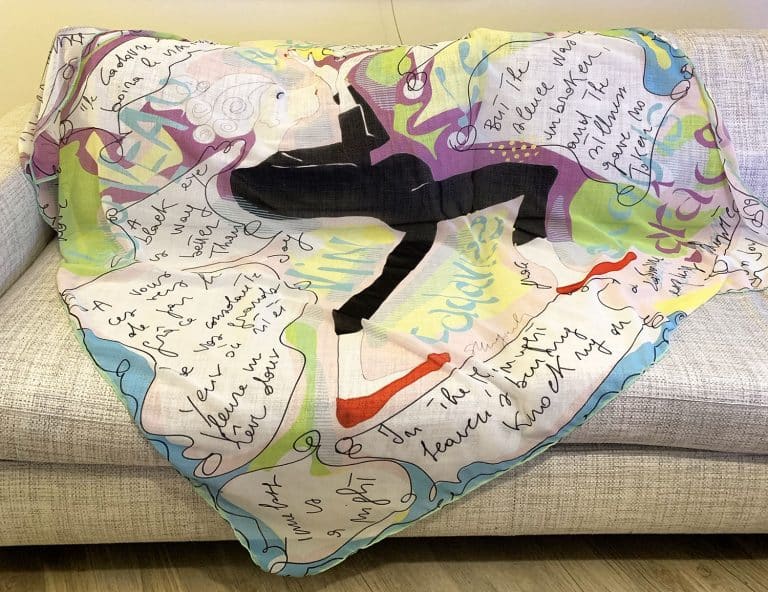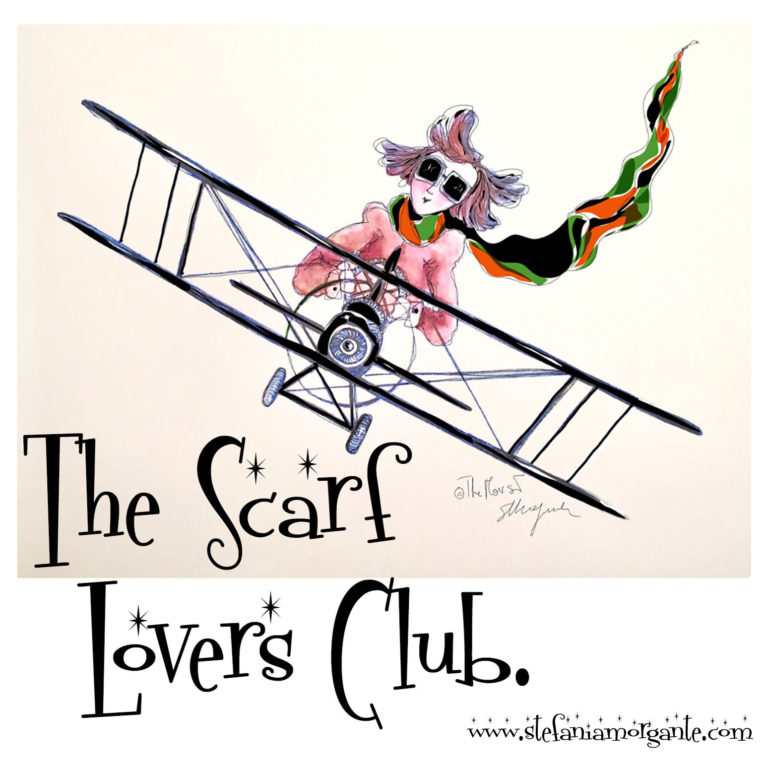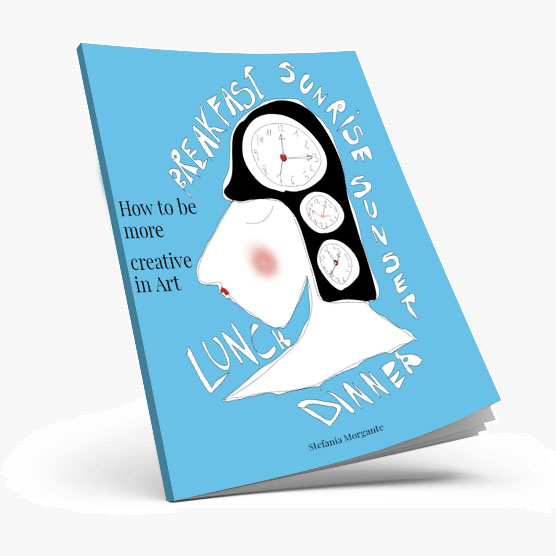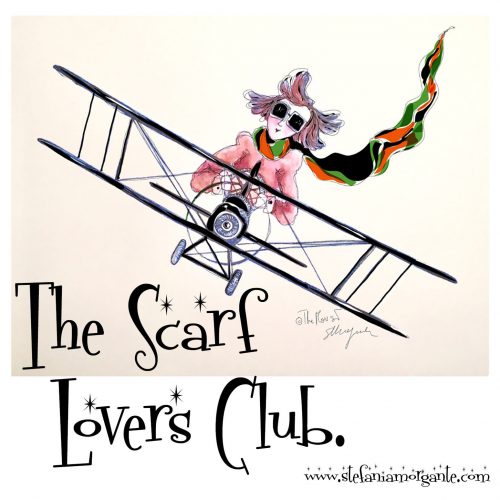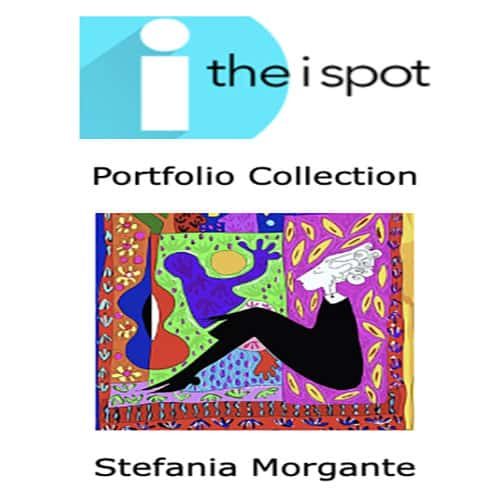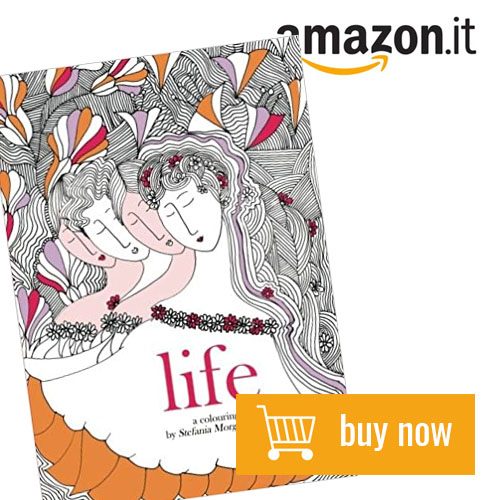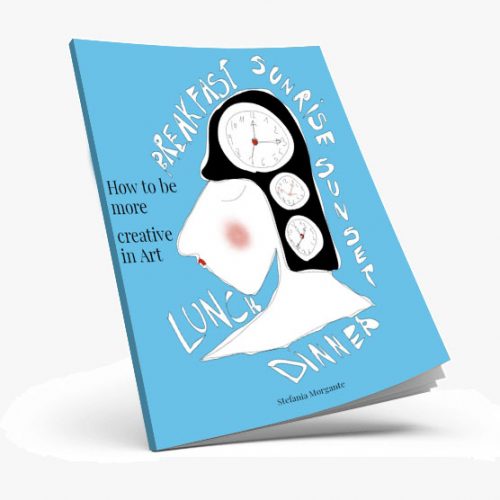Contaminations of thought and techniques.
(If you want to read the interview in Italian click HERE)
The theme of this interview is the creative act.
I have always been interested in studying other artists, in knowing how an idea is born, how it is chosen by the artist, why she/he uses a certain technique and how she/he came to choose that technique and those themes.
Let’s start dear Stefania, I’m really curious to know something about your art!
1) What is the motivation that pushed you to become an artist?
Good question. I’d like to give a profound answer, one that leads us to reflect, unfortunately I don’t have it.
The standard answer of many art addicts is that they loved drawing from an early age, this makes me smile, are there any children who don’t like messing with colors?
I think that it is born with certain tendencies, visual memory can turn out to be characterizing compared to the others. I also loved books, we had lots of them at home, I learned to read very early and I fed on stories and illustrations, those pictures and covers were my first learning exercises. But I don’t know if this was the motivation, it was rather something that was born inside in a natural way and I was successful. That’s all.
2) When did you realize you were going to be a professional artist?
I did not get it. Even today I wonder who can respond to these characteristics. When I started the school course, which was then completed with the Academy and continued with the university, the concept did not affect me in the least, the primary goal was to learn, learn everything, experience, I never had enough.
It is obvious that in the bitter and surreal dreams of us teenagers there was that of becoming the artist of the century, then life and age reduce you. Studying the history of art has given me the measure of how important, heavy and demanding this word is, to define myself as an artist still weighs me down today, it sounds pretentious to me. Having all my professional career behind me, in the strict sense I can define myself as a professional in the sector, but the definition of “artist” goes much further.
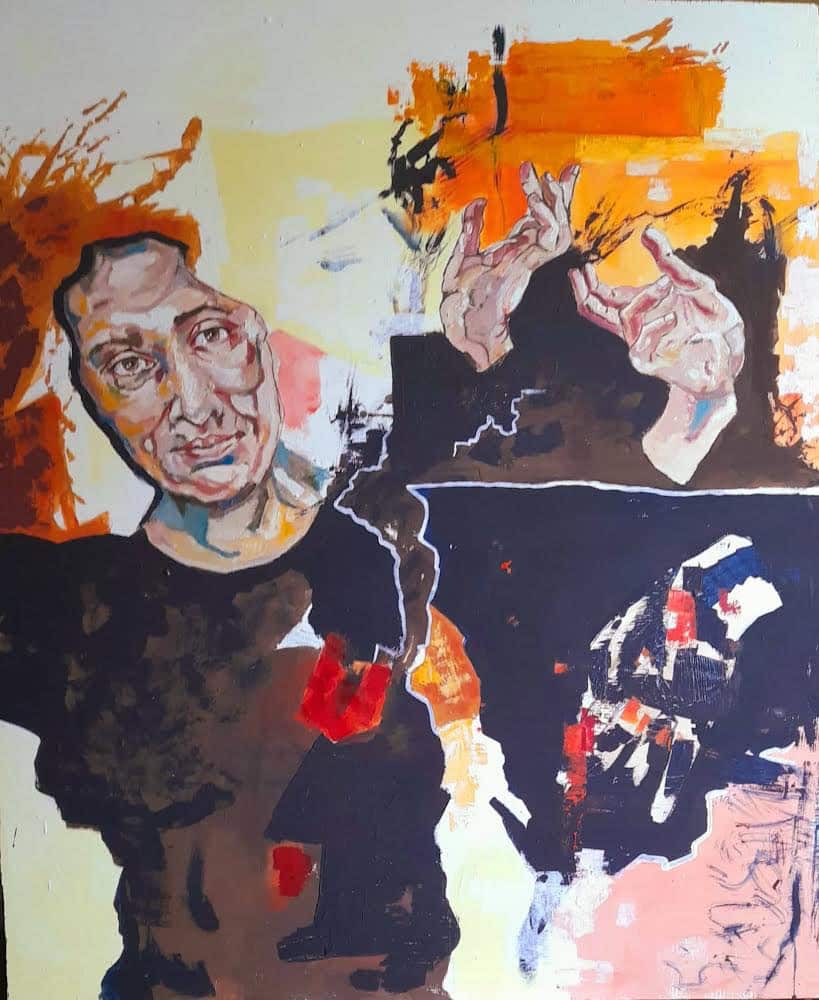
3) Was the creative process taught to you in school or did it come from your own personal experiences?
There are misunderstandings about creativity that have ended up taking root, I absolutely do not believe that creativity is a divine gift, an enlightenment on the road to Damascus. In pedagogy, creativity is understood as the ability to give multiple answers to the same problem. A kind of mental multitasking, so to speak.
Surely the school has given me a lot, it has left me an important legacy in technical and design terms, as well as artistic history. Personal experiences complete the picture, I understand it today more than ever.
I have always read a lot, I have also traveled a lot and then there are work experiences, teaching for example, works from graphics to creative commercials, restoration, art criticism, curating exhibitions, everything solicits and flows as long as one remains open and leaves one’s personal vision, ready to accept even what is very different from what is produced. Contaminations of thought and techniques undoubtedly arise, but the differences are the enriching and stimulating element for creativity and individual growth.
4) Is there any situation where you wouldn’t recommend getting more involved in drawing and painting? I know it’s weird to ask an artist this, but I’m interested in hearing about the moment when you lack inspiration, you no longer love what you do, and your creativity is moribund. So what do you do? Does this happen to you sometimes?
I think that the moments of blocking affect all fields of expression, from music to writing, from painting to dance. At one time perhaps they had the power to scare me, today they no longer do, something is needed to age, not only joint pain but experience and a more mature vision of life. Parallel to painting I love to write, not only non-fiction and criticism, also short stories, so in the past I helped myself with the writer’s block technique.
Writing a few lines every day until it starts again is a piece of advice that I also give to artists, every day a piece of paper on which to scribble something. Works. However, today I gladly accept these moments, I accept them as inevitable and with serenity, like a rainy or sunny day. I am fond of it, I know that every event in life, even the worst, if you know how to take it, has a reason to be, so I let it flow, moreover when I realize that I am struggling to achieve a result, that I am not convinced, I understand that that path is it is exhausted, it no longer responds to my expressive needs, so I do not hinder the block, I go along with it, I live it in full, I let it lead me towards new experiences, above all I allow myself the time to understand where I want to go.
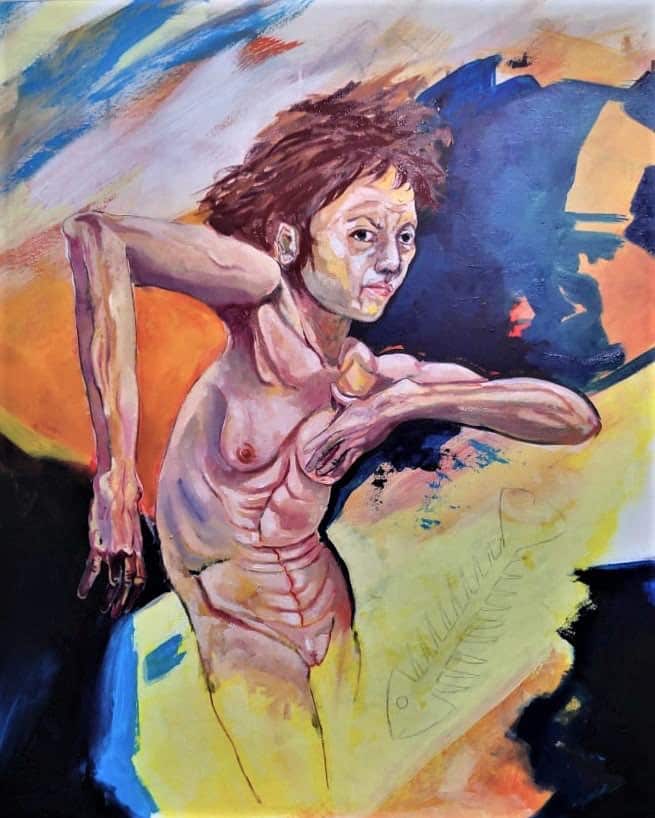
5) When you present a piece of work on the web, to clients, at exhibitions, what are the most common questions they ask you about how you created it?
I immediately clarify that I do not participate in fairs, never have and never will, I understand that today they are presented as necessary and indispensable but I cannot help but wonder who. At trade fairs, sales should be guaranteed, or at least good opportunities, but especially today, with the current crisis, how many really make interesting sales? Probably, however, mine is a prejudice linked to my personal artistic-political vision, for which it does not make a text. On the public web little, especially in recent times, I need to see and review the works, for me they are in constant evolution, publishing them would be like saying: “good first”. Finished like this.
I have so little audience that some think I paint just as little. Generally, the question about technique comes later and not necessarily, they mainly focus on meaning, on meaning, this is what they ask questions about and this is the approach that interests me. A dialogue is opened, other versions are heard, other visions, sometimes they lead me to reflect and move other ideas.
6) What is the first thing you do when you have a blank sheet of paper in front of you? Do you already know what you’re going to do? Do you already have the idea?
Generally it is precisely the idea that pushes me towards the whiteness of the canvas or sheet, but not always, sometimes I let that space be to suggest what is inside, what it could host, I don’t have a unique way of approaching it. The theme can be univocal, I often work by themes, until I run out of them, except to resume them after months or even years. Space is important, one format rather than another suggests different solutions, sometimes completely overturns the original idea.
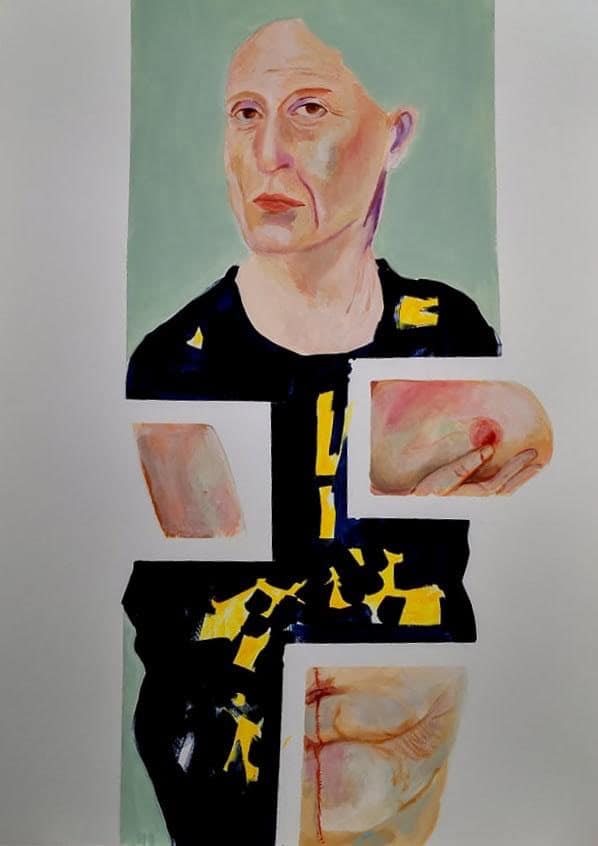
7) What fuels your creativity every day?
Certainly the social issues, the women’s question, politics, society in general. These are the themes I deal with, then there is the technical aspect linked very much to how I feel, it is a predominantly psychological fact, certainly the need to renew and experiment is a good fuel, but also to express what I think, not to remain passive to what happens around me.
8) what advice would you give to someone who is stuck creatively?
To sleep on it. Not to force, to make small sketches letting the hand go on its own, but also to ask yourself some questions about the reason for that block. Not to worry about external judgment, especially not to give up. It will pass.
9) is there an order to your creative process? Are you aware of this or do you change depending on the work?
I change according to the moment I am living and the expressive needs. The first step is focused on the vision, the work as it is created in the mind, then I try to study it, I elaborate sketches, during the work, however, I change everything very often, I let the subject guide me, the initial phase serves me only as a pushed to start, I assimilated a certain design rigor, advertising graphics studies taught me the value of balance to make the image effective, these are principles that I now apply naturally, I don’t think about them but they are recorded in my memory and they go automatically, then there is the knowledge of the history of art that often faces and stimulates me, it can be a chromatic reference as well as a formal one. But as I said I let myself be guided moment by moment ready to follow a particular effect or a light but it can also be a mistake to define the fate of the painting.
10) Does your creative process change if the work is commissioned? Does your creativity change if you have a collector asking for certain things?
Absolutely yes. I do not feel it is mine from the start, I realize that it is impersonal. When I paint the aim is not the sale but the result, if it is a commission the idea is not mine. I have stopped working on commission for at least twenty years, if you like what I do, well, they pay even better, but that’s my expression, I don’t follow the tastes of the market and even less of the customers, in advertising it was different because different working criteria, it was also fun, but in painting the mental paradigms change. To date, I have never met a collector who expressly asks for a work to his taste. Collectors who do this are the new upstart, often they understand nothing about art, they pose only by virtue of a capable wallet. The true collector observes, he/she is a lover of art, he knows history, he/she is refined in ideas and tastes, if he/she likes a work he buys and it may happen that he does not even care if the artist is emerging or established, the work they like it, consider the price and buy. You can ask for the discount if you are a regular customer, but never works on commission.
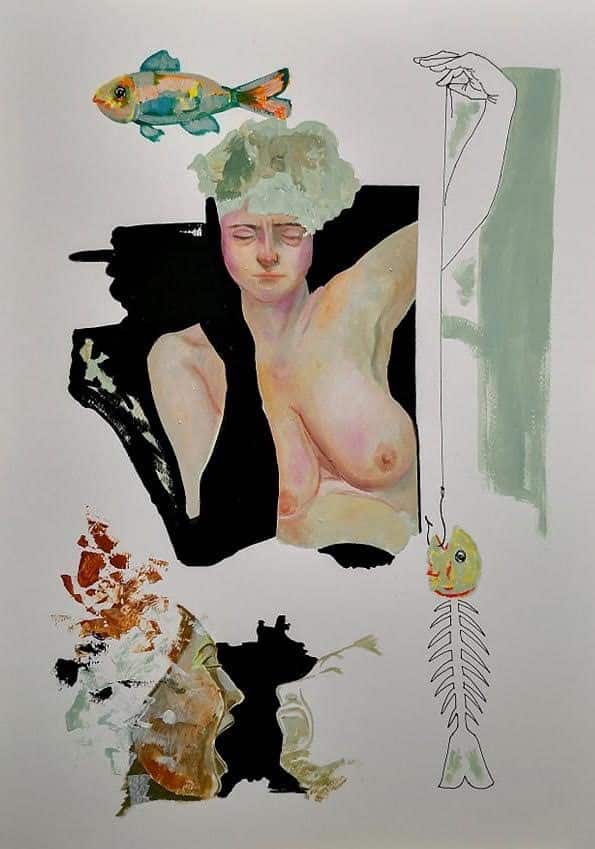
I find your way of looking at the world and interpreting it through art really interesting.
Especially because you don’t follow the more common canons of fairs, commissioned work, social glamour.
In this you are either revolutionary or ancient, certainly very interesting, thank you Stefania!
***
If you would like some insights into the exercise of creativity, click on the button below:
